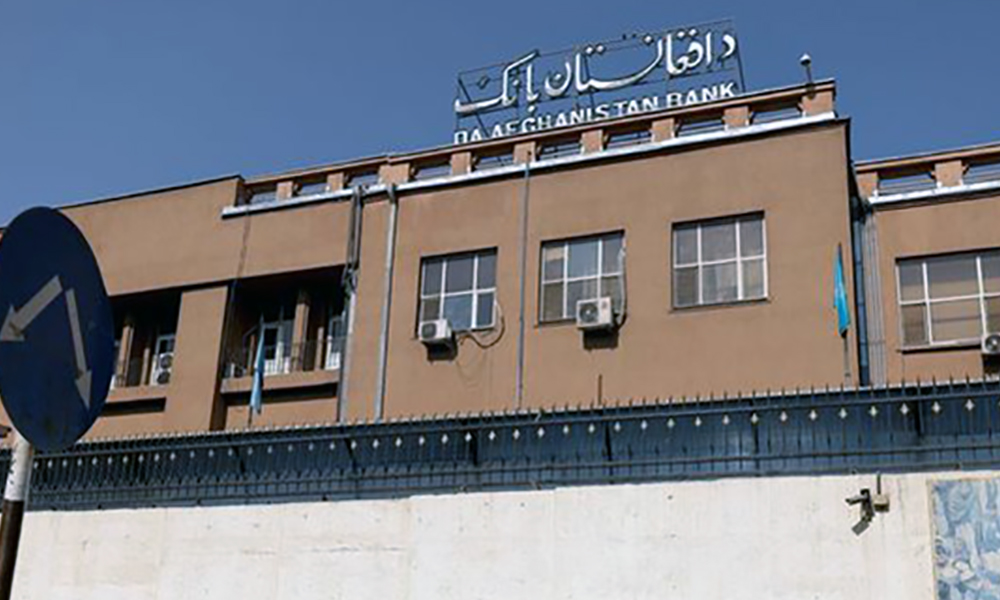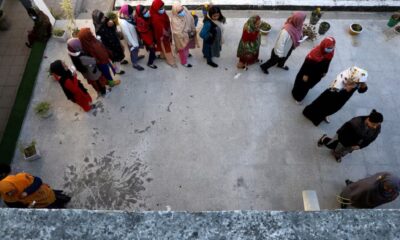Business
World Bank says Afghanistan private sector adversely affected due to economic crisis

A World Bank survey has said that Afghanistan’s ongoing economic crisis has adversely affected economic activities in the country with the private sector suffering the most.
The survey was carried out in October and November and was made public on Thursday, April 7, 2022.
The survey indicates that most Afghan traders complain about the lack of demand in markets, which has reduced economic activities and investment in the country.
One in three respondents of the survey has said that they have suspended their businesses after August 2021.
Based on the findings of the survey, 38 percent of small firms have suspended their operations, 35 of medium firms have been closed, and 25 percent of big firms have stopped their activities.
In the meantime, the existing economic situation has also impacted women-run businesses, and 42 percent of these businesses have been suspended.
Private sector members also approved the findings of the survey.
“We believe that some post-transformation economic problems have arisen, but the cause is the World Bank itself. Had they not stimulated Afghanistan’s economic systems, Afghanistan’s economy would not have been in trouble,” said Sherbaz Kaminzada, CEO of Afghanistan Chamber of Commerce and Industries.
The Afghan Ministry of Finance rejected the report and questioned its accuracy. Its officials said that economic activities in the country have increased over the past few months and that Afghanistan is still developing economically.
“First of all, we have to see how accurate this report is. The other thing is that the World Bank itself is to blame for the economic crisis in Afghanistan. Our assets have been blocked and sanctions have been imposed. These are all the problems,” said Ahmad Wali Haqmal, the finance ministry’s spokesman.
The World Bank survey also points to unemployment after the 15th of August 2021 and says that companies in Afghanistan have laid off more than half of their employees, majority of them being women.
Business
Afghanistan-Kazakhstan chamber of commerce opens in Herat

The Ministry of Interior said the governor of Herat province Islam Jar met with Alim Khan Yasin Gildaye, Ambassador of Kazakhstan to Afghanistan, to discuss various issues around trade.
According to the ministry, the two sides discussed the expansion of trade facilities, increasing the volume of trade exchanges between traders of the two countries, reducing customs tariffs, solving the challenges of traders and issuing visas to them.
The Afghanistan-Kazakhstan Chamber of Commerce has been opened in Herat in order to facilitate and increase trade between the two countries.
Business
Afghanistan reaches self-sufficiency in production of 133 items: MoIC

The Ministry of Industry and Commerce (MoIC) says Afghanistan has reached self-sufficiency in 45 sectors and the production of 133 items, and that the ministry is striving to change Afghanistan from an importing country to an exporting one.
The ministry officials said that for this purpose, supporting domestic products and attracting investment is essential.
The ministry’s spokesman Abdul Salam Jawad Akhundzada emphasized increasing the use of domestic goods and products in government and national projects and added that efforts have also begun to find a market for domestic products inside and outside the country.
“We have reached self-sufficiency in 133 items of production, which is 45 sectors, and also we reached the capacity of semi-self-sufficiency in 95 items of production, which is 27 sectors,” he said.
Meanwhile, the Chamber of Industries and Mines (ACIM) says over the past two and a half years, more attention has been paid to the development of domestic production and it is also expanding.
The chamber officials stressed expanding the culture of using domestic products in government projects.
“I think that the government is one of the biggest consumers in the market if it uses domestic products in all its development projects,” said Abdul Nasir Rashtia, a member of ACIM.
Economic experts also said that if the use of domestic products in government projects increases, Afghanistan will quickly move towards economic independence.
Business
DAB declares online currency exchanges illegal

Da Afghanistan Bank (DAB) announced Monday that online exchanges are banned and legal action will be taken against anyone who violates the order.
DAB said in an announcement that it has not issued any license to any person or company to operate an online exchange, because such activities are illegal.
“Da Afghanistan Bank requests our dear compatriots to refrain from online exchange transactions due to the risks, damages and subsequent consequences of these transactions,” it said.
DAB added that the issue has been shared with intelligence and security institutions and legal action will be taken against violators.
-

 Regional4 days ago
Regional4 days agoIndian foreign ministry advises against travel to Iran, Israel
-

 Latest News4 days ago
Latest News4 days agoAfghanistan withdrawal probe sparks anxiety within Biden administration: US’s McCaul
-

 Latest News3 days ago
Latest News3 days agoTop former US general claims Daesh-Khorasan is ‘on the upswing’
-

 Latest News4 days ago
Latest News4 days agoLightning strikes in Helmand kill one, injure three
-

 Science & Technology4 days ago
Science & Technology4 days agoChina launch of relay satellite Queqiao-2 for lunar probe mission successful
-

 World5 days ago
World5 days agoVoters in many countries sceptical of democracy, poll shows
-

 Business3 days ago
Business3 days agoAfghanistan reaches self-sufficiency in production of 133 items: MoIC
-

 Health3 days ago
Health3 days agoMajority of Afghans with mental disorders are women: officials
























